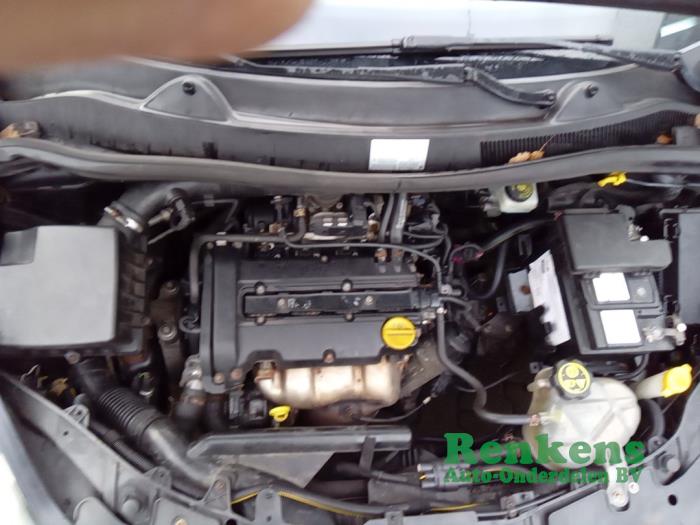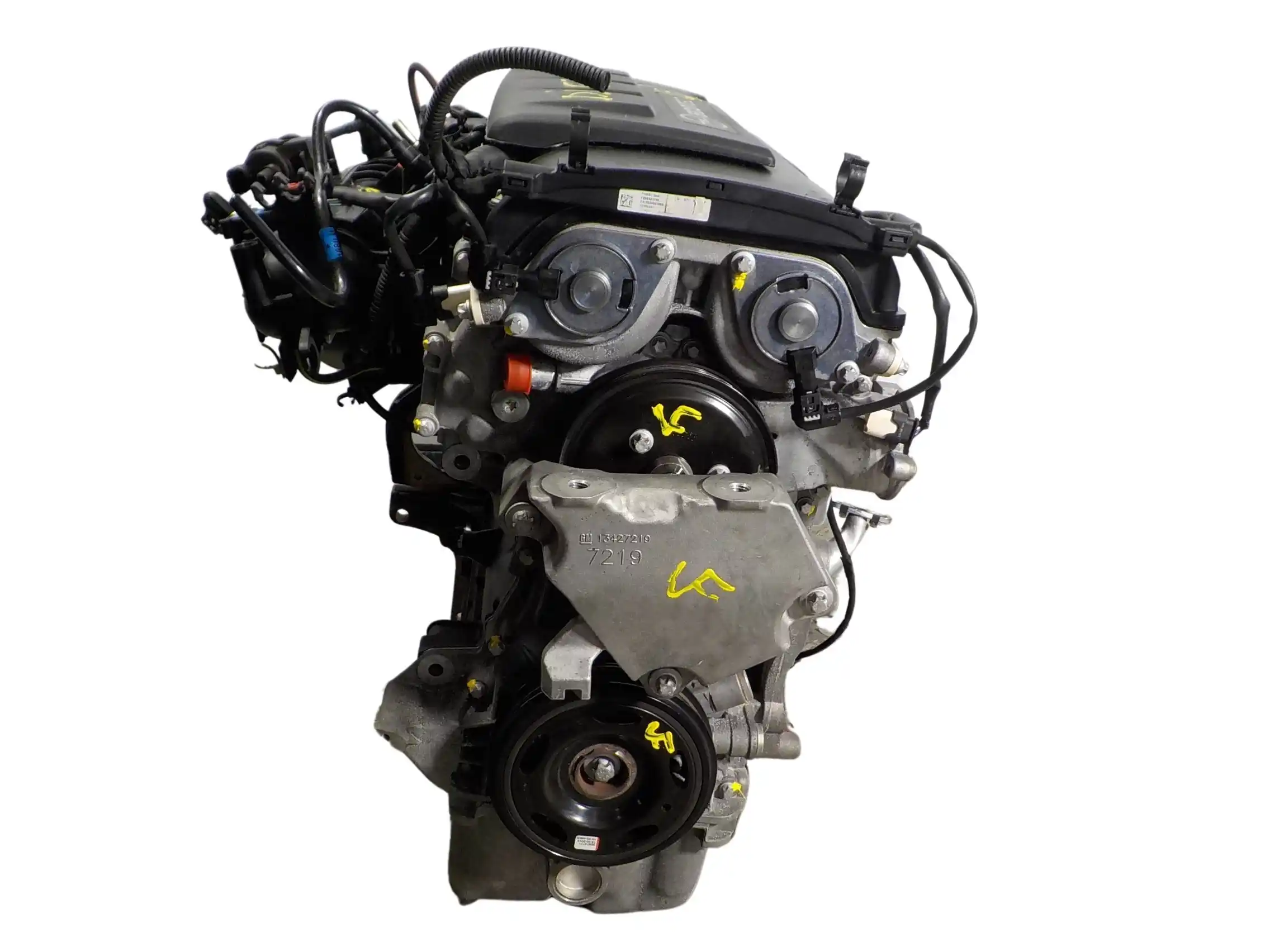Opel Corsa 1.4 Engine Price Failure: Discover Top Quality Automobile Components Selections
Opel Corsa 1.4 Engine Price Failure: Discover Top Quality Automobile Components Selections
Blog Article
Smart Purchaser's List: Secret Features to Assess in Engines Before Making an Acquisition
When considering acquiring an engine, there are several vital functions that a critical customer should assess to ensure they are making a well-informed choice - Opel Corsa 1.4 Engine Price. From the type of engine to its performance metrics, gas durability, maintenance, and performance costs, each element plays an essential function in figuring out the engine's viability for the designated function. By thoroughly checking out these aspects, customers can buy that not only meets their current needs but likewise confirms to be a smart long-term financial investment
Engine Kind Examination

For applications needing high power output, such as durable industrial machinery or big vehicles, diesel motor are frequently liked due to their effectiveness and torque capabilities. On the other hand, gas engines are generally selected for smaller sized equipment, cars, and power devices where lighter weight and greater RPM performance are useful.
In addition, the setting in which the engine will certainly run should be thought about. Aspects such as elevation, air, and temperature quality can influence the engine's performance and longevity. Picking an engine type that is appropriate for the certain operating problems will help make certain ideal performance and resilience.
Performance Metrics Evaluation
Evaluating efficiency metrics is essential in figuring out the effectiveness and effectiveness of an engine for its designated application. One vital metric to consider is the power output, typically measured in horsepower (HP) or kilowatts (kW), which shows the engine's capability to carry out job. Torque is one more essential metric as it stands for the rotational force created by the engine, affecting its capability to get rid of resistance and speed up. Gas efficiency is an important performance statistics, highlighting just how successfully the engine converts gas right into usable energy. Furthermore, analyzing discharges levels, such as co2 (CO2) and nitrogen oxides (NOx), is essential for guaranteeing environmental conformity and reducing the engine's ecological effect. Thermal effectiveness, a procedure of just how well the engine transforms warmth from gas combustion right into mechanical work, is likewise essential in evaluating total performance. By carefully evaluating these performance metrics, customers can make educated decisions when selecting an engine that aligns with their specific needs and objectives.
Gas Efficiency Assessment
Examining gas effectiveness is an essential factor in determining the functional cost-effectiveness and environmental influence of an engine. Gas efficiency refers to the quantity of energy an engine can remove from a certain quantity of fuel. It directly influences the general operating expenses of the engine, making it an important factor to consider for purchasers aiming to enhance their long-term expenses.
When evaluating fuel efficiency, it is vital to take into consideration metrics such as miles per gallon (MPG) or litres per 100 kilometers (L/100km) relying on the region. These metrics provide a clear indicator of exactly how see post far a car can take a trip on a device of gas, enabling customers to approximate gas costs precisely. Additionally, innovations like crossbreed systems, turbocharging, and direct gas injection can substantially influence gas efficiency by enhancing combustion effectiveness and reducing energy losses.
Ultimately, picking an engine with high fuel efficiency not only decreases operational prices but additionally lowers carbon emissions, making it an environmentally conscious selection. By prioritizing fuel efficiency throughout the getting process, buyers can make informed decisions that line up with their environmental and financial objectives.
Sturdiness and Reliability Inspect

Considering the significant influence of fuel performance on operational costs and ecological sustainability, the next important facet to review in engine acquisition is the toughness and dependability of the engine. Resilience describes the engine's ability to stand up to wear, corrosion, and tension over a prolonged period, guaranteeing a longer lifespan. Dependability, on the various other hand, relates to the engine's consistency in performance under various problems without unforeseen malfunctions or failings.
To evaluate the resilience and integrity of an engine, numerous variables require factor to consider. Initially, checking out the engine's construction products and layout can offer understanding right into its robustness and resistance to use. In addition, examining historical data on the engine version's performance, upkeep requirements, and common concerns reported more by individuals can assist assess its integrity.
Moreover, qualifications from respectable organizations, service warranty offerings, and supplier reputation for creating trustworthy engines are beneficial indicators of longevity and integrity. Performing detailed study, seeking referrals, and evaluating maintenance records can assist in making a notified choice on buying an engine known for its longevity and reliable performance.
Cost and Maintenance Considerations
When considering engine purchase choices, a vital facet to dig right into is the economic implications combined with upkeep factors to consider. The expense of an engine prolongs past the first purchase cost. It is vital to assess aspects such as fuel performance, ongoing upkeep prices, and the accessibility of spare components. Selecting a fuel-efficient engine may result in long-lasting price savings in spite of a possibly higher in advance rate. Additionally, evaluating the maintenance needs of different engine designs is crucial. Some engines may demand regular maintenance or specialized treatment, bring about boosted maintenance expenses over time. Taking into consideration the availability and cost of extra parts is also paramount. Engines with conveniently available and reasonably priced extra parts can considerably reduce upkeep costs and downtime. Prioritizing cost-effectiveness and simplicity of upkeep can result in a much more cost-effective and lasting engine financial investment in the long run.
Conclusion
To conclude, it is essential for buyers to completely review crucial features in engines prior to purchasing. By considering the engine kind, efficiency metrics, fuel performance, durability, maintenance, cost, and reliability requirements, purchasers can make an enlightened choice that meets their needs and expectations. This detailed assessment procedure makes sure that purchasers choose an engine that will offer ideal performance and long life for their meant usage.
From the type of engine to its efficiency metrics, gas effectiveness, toughness, and maintenance prices, each facet see this here plays an important role in establishing the engine's suitability for the desired objective. Gas efficiency is an important efficiency statistics, highlighting how properly the engine converts fuel right into functional energy. Fuel performance refers to the quantity of energy an engine can draw out from a specific quantity of gas.Taking into consideration the significant influence of fuel effectiveness on functional expenses and ecological sustainability, the next critical element to assess in engine acquisition is the durability and integrity of the engine. By thinking about the engine kind, efficiency metrics, gas effectiveness, toughness, upkeep, price, and dependability needs, buyers can make an educated decision that meets their expectations and requirements.
Report this page